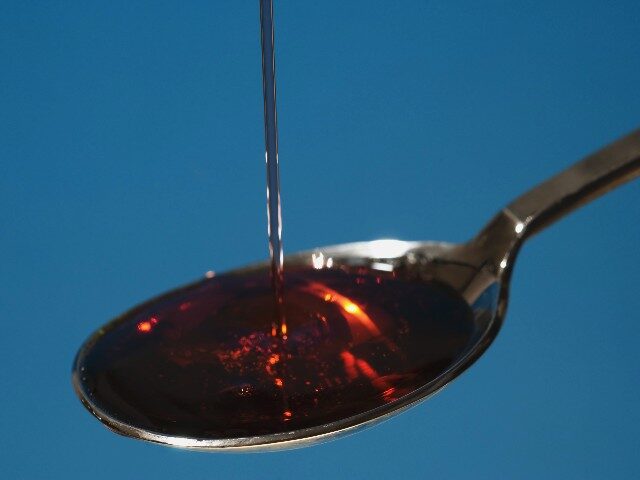The Health Ministry of Uzbekistan on Wednesday blamed a cough syrup called Doc-1 Max, produced by a company in India called Marion Biotech, for the deaths of at least 18 children. Marion Biotech said it has halted production of the suspect medicine and is awaiting the results of an official inquiry.
India’s WION News reported a possible nineteenth death on Thursday, a one-year-old. The other known fatalities occurred in Samarkand, a city in southeastern Uzbekistan.
WION quoted the Indian Health and Foreign Ministries pledging that investigations and legal action are underway:
Indian Health Minister Mansukh Mandaviya the further result will decide the plan of action. Mandaviya said in a series of tweets: “Immediately on receipt of information, joint inspection of the NOIDA facility of the manufacturer, Marion Biotech, was carried out by UP Drug Control and CDSCO team and further action as appropriate would be initiated based on the inspection report.”
While responding to the situation, India’s foreign ministry spokesperson Arindam Bagchi said, “We understand that legal action has been initiated by the Uzbek authorities against some people, including the local representative of the company there… And in that context, we are extending necessary consular assistance to those individuals or individual.”
WION’s sources in the Indian Foreign Ministry said the Uzbek government has not lodged a formal complaint, but Uzbek authorities have been “in touch” with the Indian diplomatic mission in Uzbekistan’s capital city of Tashkent.
Doc-1 Max, whose name is also spelled “Dok-1 Max” by Marion Biotech, is an oral medication produced in both tablet and syrup form. Its primary ingredient is paracetamol, also known as acetaminophen, which is also found in popular medications such as Tylenol. Paracetamol is effective for reducing fevers and controlling pain, but it can be harmful in high doses, particularly in small children.
Laboratory tests conducted after the deaths in Uzbekistan discovered the Doc-1 Max doses contained ethylene glycol, a toxic organic compound most commonly used in crafting polyester and brewing antifreeze.
The U.S. Centers for Disease Control (CDC) notes that ethylene glycol has an agreeably sweet taste, which might be why it found its way into children’s medication, but it “breaks down into toxic compounds in the body,” which “first affect the central nervous system, then the heart, and finally the kidneys.” These toxins can be fatal in large enough doses.
The Uzbek Health Ministry said the children allegedly harmed by Doc-1 Max “took this drug at home for 2-7 days 3-4 times a day, 2.5-5 ml, which exceeds the standard dose of the drug for children.”
“Since the main component of the drug is paracetamol, Doc-1 Max syrup was incorrectly used by parents as an anti-cold remedy on their own or on the recommendation of pharmacy sellers, and this was the reason for the deterioration of the condition of patients,” the Health Ministry explained.
Uzbek health officials apparently saw the overdose of paracetamol as the primary hazard to heavy Doc-1 Max users, but they said the ethylene glycol made the situation worse.
“This substance is toxic, and about 1-2 ml/kg of a 95% concentrated solution can cause serious changes in the patient’s health, such as vomiting, fainting, convulsions, cardiovascular problems and acute kidney failure,” the Health Ministry noted.
“Tablets and syrups of the drug Doc-1 Max are withdrawn from sale in all pharmacies of the country in a prescribed manner,” the Health Ministry said, adding that seven of its own employees have been dismissed for “negligence” in connection with importing and selling the medicine.
The UK Independent said on Thursday it was “not immediately clear if all or any of the children consumed the suspect batch, or had consumed more than the standard dose, or both.” which would suggest the Indian Health Ministry has some questions about the report from Uzbekistan.
India’s pharmaceutical regulatory agency said on Thursday it has conducted an inspection of Marion Biotech’s facilities near New Delhi and plans to conduct its own tests of the suspect cough syrup while coordinating with its counterpart agency in Uzbekistan.
Marion Biotech said through its legal representatives that it “regretted the deaths” in Uzbekistan and has halted production of Doc-1 Max syrup, pending investigation.
India, which supplies a good deal of the world’s pharmaceuticals, has been dealing with several other claims that children died after consuming cough medications. The most tragic of these claims came from Gambia, where police said in October they were investigating the deaths of 69 children who suffered acute kidney failure after taking cough syrup made by India’s Maiden Pharmaceuticals.
India’s drug regulators sent a letter to the World Health Organization (W.H.O.) on December 13 stating they tested samples of Maiden Pharma’s products and found they were “complying with specifications.”
W.H.O. said it found “unacceptable” levels of ethylene glycol and another toxic compound, diethylene glycol, in Maiden Pharma products. The Indian regulatory agency said it did not find either compound in the samples it tested. India complained that W.H.O. caused “irreparable damage” to its pharmaceutical sector with its report on the Gambian deaths.
Indonesia banned the sale of all syrup and liquid medications in October after news of the Gambia investigation. Indonesian health officials said they were tracking about two hundred cases of acute kidney injury (AKI) in children, most of them under five years old, and said 99 children could have died from toxic ingredients in syrup medication during 2022.
“Some syrups that were used by AKI child patients under five were proven to contain ethylene glycol and diethylene glycol that were not supposed to be there, or of very little amount,” Indonesian Health Minister Budi Gunadi Sadikihn said in October.
Indonesian health officials have not released much information about the medicines they suspect of causing injuries in children, but they said Indian cough syrups are not commonly available in Indonesia, and Maiden Pharma said the four brands of medicine suspected of toxicity in Gambia were sold only in that country.

COMMENTS
Please let us know if you're having issues with commenting.